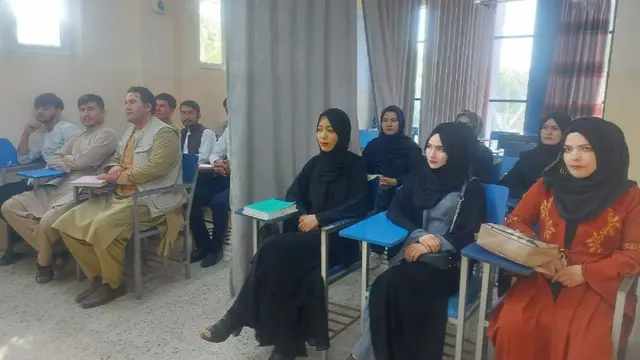Students across Afghanistan have started returning to university for the first time since the Taliban stormed to power, and in some cases, females have been separated from their male peers by curtains or boards down the middle of the classroom.
Despite assurances in recent weeks that women's rights would be honored in accordance with Islamic law, it is unclear what that will mean in practice.
The United Nations on Tuesday said it will assist the fledgling Taliban government in paving the way for the rights of women and girls.
"The movement we face here today, as many, many other people have told me, is not the movement that we saw (in 1998)," said UN Undersecretary-General for Humanitarian Affairs Martin Griffiths on his meeting with Mullah Baradar and the Taliban leadership. "It certainly has links in ideology but it's different to the one then."
Griffiths spoke from Doha on his two-day visit to Kabul via video link for correspondents at a regular briefing at the UN headquarters in New York.
The relief chief said he had spoken to some senior Afghan women who advised him to be very clear with the Taliban, welcome their statements on the issue of women and girls and then talk about "how we can turn that into reality."
Baradar agreed but "he did add that the rights of the people in Afghanistan were subject to the culture and religion of Afghanistan," Griffiths said, indicating it was an area that needs some work.
Also on Tuesday, Griffiths' Office for the Coordination of Humanitarian Affairs issued a consolidated $606-million Flash Appeal for Afghanistan to address the immediate response gaps in Afghanistan.
(With input from Reuters, Xinhua)
(Cover: Students attend class under new classroom conditions at Avicenna University in Kabul, Afghanistan, September 6, 2021. /Reuters)
 简体中文
简体中文

